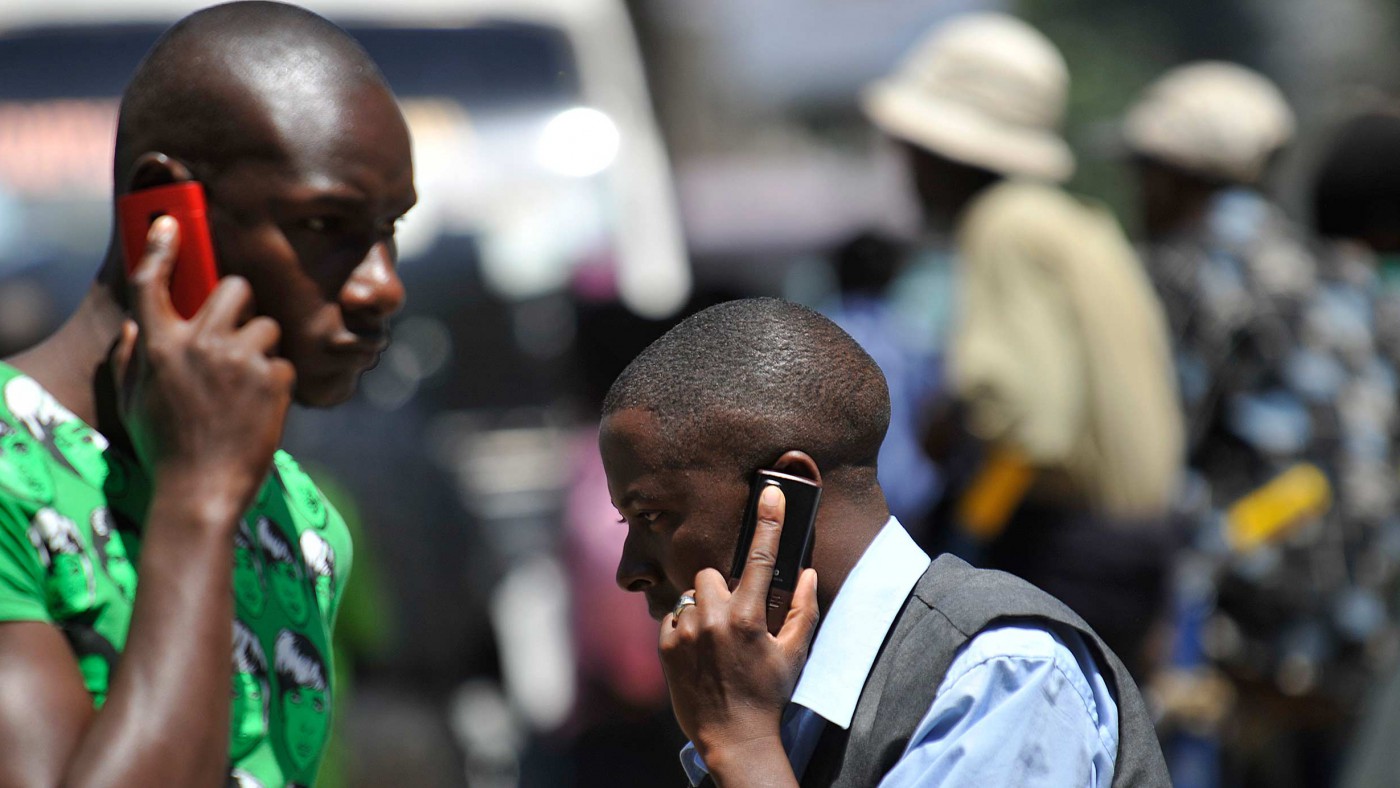
For a continent containing 54 countries and 1.1 billion people Africa is often the victim of cliché and generalisation lacking proper analysis and depth.
It is not the basket case it is often made out to be. But it’s fair to say that many parts of it face serious problems and deprivation is stark. In Sub-Saharan Africa 47 per cent of the population live on less than $1.25 a day and 75 per cent of the world’s poorest countries are found in the continent.
However, the innovative use of mobile phones is helping to push back the frontier of poverty.
In Kenya the most vulnerable people live off the land. For farmers, knowing when to plant is crucial to getting a harvest good enough to feed their families.
In the past growers used the signs of nature that heralded coming rains but these are no longer reliable.
Changes in the country’s climate, especially longer, hotter dry periods and more erratic rainfall spell danger for small scale farmers who survive from one harvest to the next.
The UN’s Environment Programme estimates environmental vulnerability costs Kenya up to 40 per cent of its GDP.
The few weather forecasts that are available are usually designed for urban populations in large towns so a local partner organisation of Christian Aid, the snappily titled Christian Community Services Mount Kenya East, began work with experts from the UK Met Office and the Kenyan Meteorological Department to send tailored weather forecasts to farmers by text message. Mobile phone ownership among farmers in the region is at 80 per cent – across Africa as a whole there are more than 600m mobile phone subscriptions with the number predicted to reach 900m by 2019.
The detailed weather forecasts are translated into local dialects and then sent to farmers in abbreviated text messages. One farmer, John Ngari, said: “It tells me when to start preparing the land, what type of seeds to plant and which days I need to hire labour. Information is power.”
Mobile phone technology is also playing a crucial role in the next stage of the supply chain.
Once smallholder farmers have their produce they are often not confident in negotiating fair prices with middlemen and traders because of a lack of access to market price information.
In Ghana’s Upper East region Christian Aid’s partner organisation interviewed local farmers and 93 per cent said they needed up to date price details as well as information on potential buyers.
So the My Price Centre platform was developed which delivers market information by text from Esoko, a privately-operated agricultural market information company based in Accra.
Not only are smallholders now equipped to strike a better deal for their goods they also know how, when and where to sell and what kind of crops to plant for maximum return.
They can study price trends and strategise, increasing their revenue from the same quantity of produce.
These improved efficiencies also make them more resilient to crop failures and other production setbacks. One farmer, Anaane, explained: “Last year, I sold 11 bags of sorghum in the Kandega market and got GHS 550 [$171].
This year, I only had nine bags but with the market price information right on my phone, I took the nine bags to Bolga market and got a total of GHS 720 [$224], even after deducting the transport cost.”
Anaane is using the extra income to send his daughter to secondary school.
Once they have secured their hard earned profits, mobile technology is even helping Africans to find a place to store their cash. Across Africa only 20 per cent of families have formal bank accounts with the vast majority of these concentrated in cities.
Access to financial services is often the difference between surviving and thriving, especially for small businesses.
In Kenya and Tanzania the M-Pesa money transfer service, developed with support from the UK’s Department for International Development, has revolutionised life for the ‘unbanked’. Effectively a branchless banking service, the platform allows users to deposit money into accounts stored on their phones, send money through PIN secured transactions and pay for goods and services.
Users can also withdraw cash from agents at convenience stores and roadside stands across the country. African mobile banking now leads the world.
Such has been the success of M-Pesa (M is for mobile, pesa is Swahili for money) it has spread to South Africa, Afghanistan and India. Conventional banks have been fighting back with similar products in an attempt to get on the mobile banking bandwagon but last year in Kenya M-Pesa transactions were valued at more than 2.1 trillion Kenyan Shillings, a 28 per cent increase on the previous year, almost half the value of the country’s GDP.
Removing large amounts of cash from the system also reduces the chance of robbery.
Measuring poverty is more than pounds and pence. It’s more often a question of powerlessness and an inability to effect change over one’s life. Through the clever use of, by modern standards, relatively simple technology, some of the poorest people are being able to lift their horizons and begin to tip the balance of power back in their favour.
Joe Ware is Church & Campaigns Journalist at Christian Aid.
FRENCH VERSION


